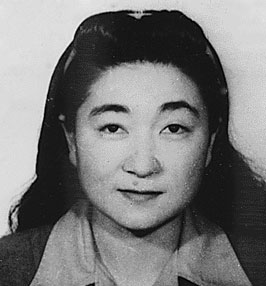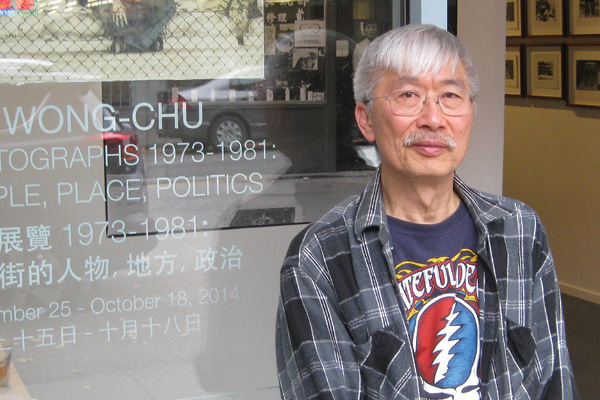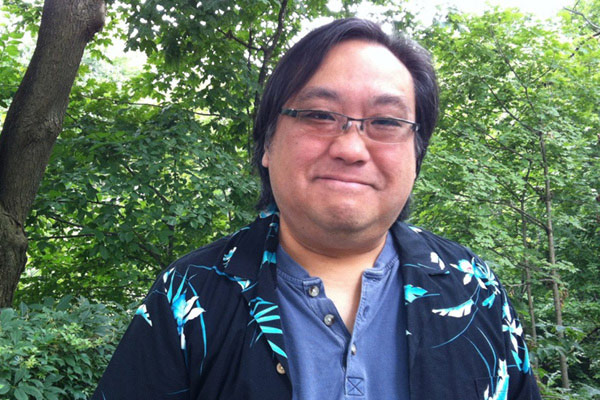
by Terry Watada
Editor’s note: While Terry is on his summer hiatus, we decided to look back on his nearly thirty years of writing about and for the Japanese Canadian community and by extension the Asian Canadian community. We will be reprinting some his columns until his return.
Iva Ikuko Toguri died on September 28, 2006, at her Chicago home. She was 90 years old. An unassuming Nisei woman with a gravelly voice and a kind heart, she experienced her Warholian fifteen minutes of fame during World War II as one of several known as “Tokyo Rose”. Americans, which I dare say included most Nisei, thought her to be a traitor. In fact, she spent six years in a federal prison after having been convicted of treason – only the seventh in American history. She had to live with that until President Gerald Ford bestowed a presidential pardon as one of his last acts in January 1977. A closer examination of her life reveals not a demon turncoat bent on destroying military morale but an innocent caught in a web of circumstances.
Accounts at that time show that Walter Winchell, powerful precursor to the modern-day tabloid “reporter”, and the American Legion lobbied hard to put Iva Toguri on trial, even though reports from General Douglas MacArthur and the army’s Counter Intelligence Corps indicated she had done nothing treasonable. “Axis Sally”, in reality a US citizen named Mildred Gillars, had been imprisoned and American-born William Joyce of “Lord Haw Haw” fame was executed for treason, so why not Tokyo Rose?
I won’t go into great detail about her case, but it is clear she was a victim of circumstance. She was stuck in Japan in 1941 while caring for a sick aunt. In all likelihood, she was forced into being part of the Japanese propaganda machine by virtue of her ability to speak English. The broadcasts themselves were highly campy, too preposterous to be taken seriously. Her stories of infidelity on the homefront and false reports of battle outcomes in between frequent spins of pop records were the stuff of fiction. If anything her broadcasts contributed positively to American military morale, something she claimed she had intended all along. On her program called “Zero Hour”, she introduced herself as “your favorite enemy, Orphan Ann” or “Orphan Annie, your playmate”, a not-so-subtle reference to her American status in Japan. “Tokyo Rose” was a nickname invented by the American G.I.s, almost as a term of affection actually. A typical message read as follows: “Orphans of the Pacific, you are really orphans now. With all your ships sunk how will you get home?”
When I met Iva Toguri in Chicago in the early 1980s, I was introduced by one of her nieces, whom I met at a Buddhist conference. We went to Toguri’s Department Store, a business not unlike Woolworth or Woodward’s, and the Rose Lady was behind the cash. She didn’t look like the traitor caricatured in editorial cartoons and Bugs Bunny cartoons for that matter. She was a gentle and kind Nisei lady who was happy to make my acquaintance. Her voice had a slight lisp but her Nisei accent was quite clear. When she learned I was from Canada, she entreated her niece to show me around town, making sure I saw all the important sites. She even offered me some sushi.
At the time, I of course only knew the cover story about “Tokyo Rose” and so there was a major disconnect here with this wonderful Nisei woman standing in front of me, who could’ve been my mother or aunt all things considered. I soon left Chicago and some time later found her autobiography, a book that held a great lesson for me.
After her pardon, she told reporters, “It would be more or less general feelings of freedom that I want. You don’t realize the importance or significance of such a thing until you lose it.” When I read that in her autobiography, I immediately thought of all the Nisei in the US and Canada. That was after all what they all wanted, a general feeling of freedom.
October 2006


